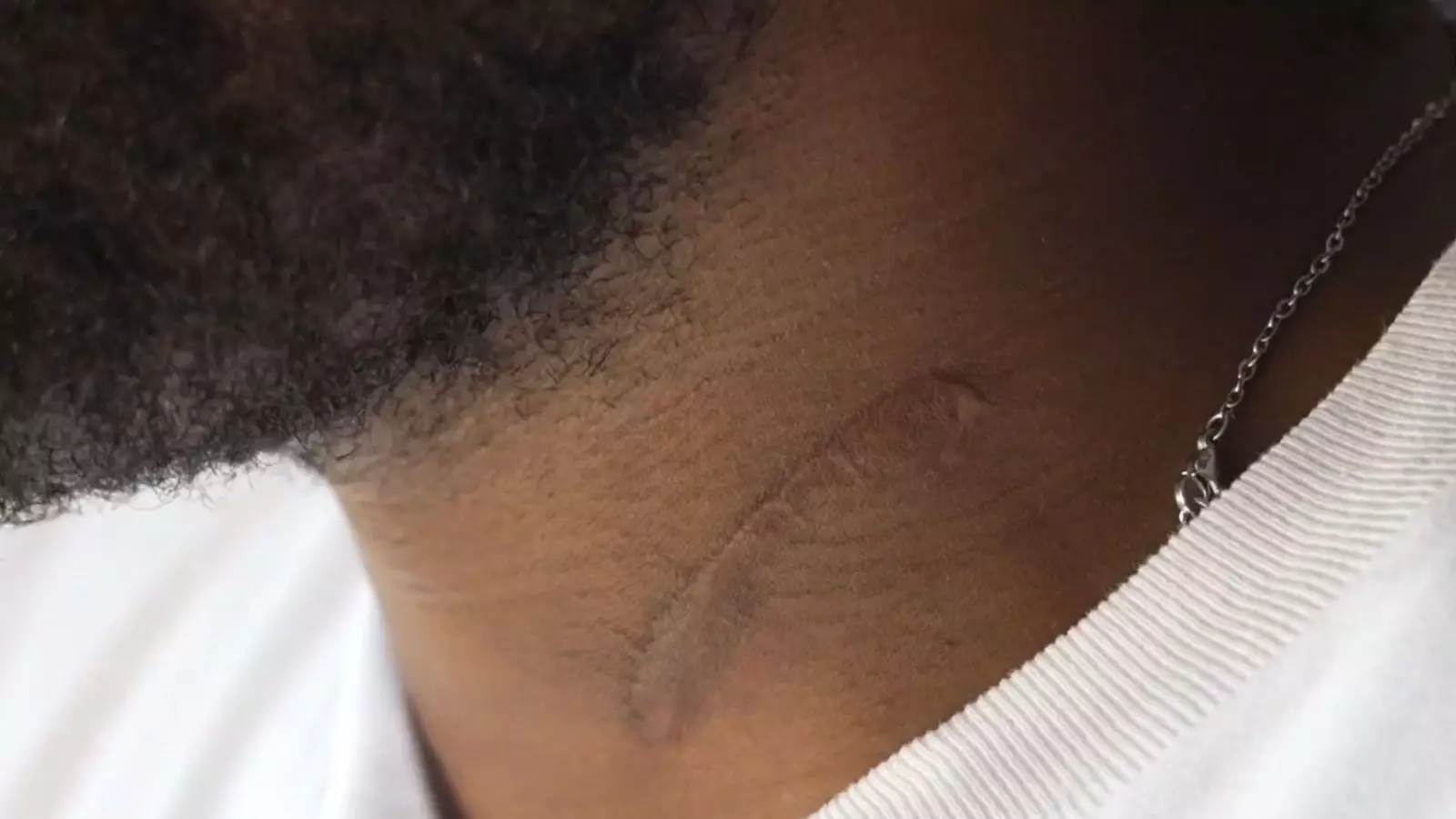In a world where violence often feels like a distant specter, the harrowing tale of Donato Iwule stands as a brutal reminder that terror can strike in the most mundane of moments. Imagine, just for a moment, going about your daily routine only to be thrust into a life-threatening scenario that plays out like a twisted horror film. On the fateful day of April 30, 2022, Iwule experienced this horrifying reality firsthand when he became the first target of Marcus Arduini Monzo’s chaotic rampage in Hainault, where a samurai sword served as the weapon of choice in this surreal nightmare.
The chilling account of Iwule’s near-death experience exposes a glaring societal issue: the fragility of personal safety in local communities. As he recounts Monzo’s terrifying declaration, “I’m going to kill you,” it’s impossible not to feel the weight of fear that griped not just Iwule in that moment, but has since permeated the lives of those around him. This incident challenges our perceptions of public safety and the effectiveness of community regulations in keeping citizens safe from acts of senseless violence.
The Ripple Effects of Trauma
Iwule’s escape from death was not just a matter of physical survival; it birthed a transformation in his mental landscape. The psychological toll of such an encounter is profound, as evidenced by Iwule’s confession that for months, he was haunted by the very real specter of his own demise. Experiencing repeated flashbacks, he was robbed of his peace and forced into the solace of his mother’s home in a desperate attempt to feel safe again. The emotional scars of this incident run deep and expose the insidious nature of trauma.
The aftermath of violence is insidious, seeping into the lives of victims, families, and communities without warning. While Iwule’s recovery may take time and support, many victims of similar tragedies may not find such avenues for healing. This raises crucial questions about mental health resources and community support systems. Why do we allow survivors of violence to feel isolated? What does the state offer in terms of psychological aid when a citizen’s fundamental sense of safety is shattered?
A Society’s Responsibility
Monzo’s conviction may bring some sense of justice, yet it doesn’t resolve the underlying issues wrought by his actions. As he awaits sentencing, we must confront an uncomfortable truth: such acts of aggression could potentially happen again, even in the most unassuming neighborhoods. The attackers often blend into society, and the resultant shockwaves of their actions ripple far beyond the immediate tragedy.
As a center-wing liberal, I argue for a society that prioritizes prevention through proactive measures—both in terms of law enforcement and community resources. It is urgent that we hold our authorities accountable for creating environments free from fear. Rather than allowing tragedy to redefine our lives, we must work to build a culture of resilience, where the trauma of Iwule does not keep others shackled in terror.
The Power of Resilience
Despite the horrors he faced, Iwule’s narrative shines a light on an often-overlooked aspect of human experience: resilience. His determination to survive and thrive after such a traumatic attack serves as an empowering testament to the human spirit. “He thought that he won. But he didn’t… I was supposed to be dead,” Iwule’s defiance resonates deeply. It embodies a strength that can inspire others who are grappling with their own battles, albeit not in the same visceral manner.
Each story of survival is a case study in fortitude, revealing layers of emotional complexity that challenge our understanding of vulnerability. In the face of horror, the choice to reclaim one’s life is a powerful statement against oppression and fear. This resilience should not only be celebrated, but also systematically fostered through better community programs that address psychological health and the needs of at-risk populations.
The narrative of Donato Iwule forces us to confront dark realities while simultaneously serving as a clarion call for community solidarity, mental health awareness, and the systematic reform needed to protect individuals from the chaos that comes unannounced. His journey post-attack, fraught with vulnerabilities yet marked by an indomitable will, beckons us to remain vigilant, compassionate, and proactive in safeguarding the sanctity of every life.

